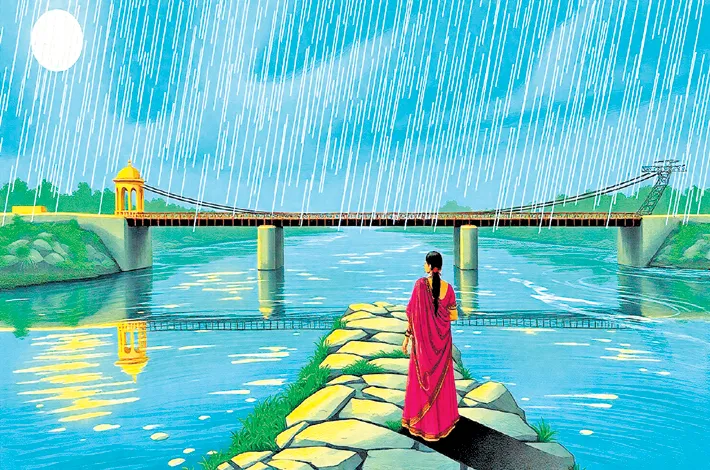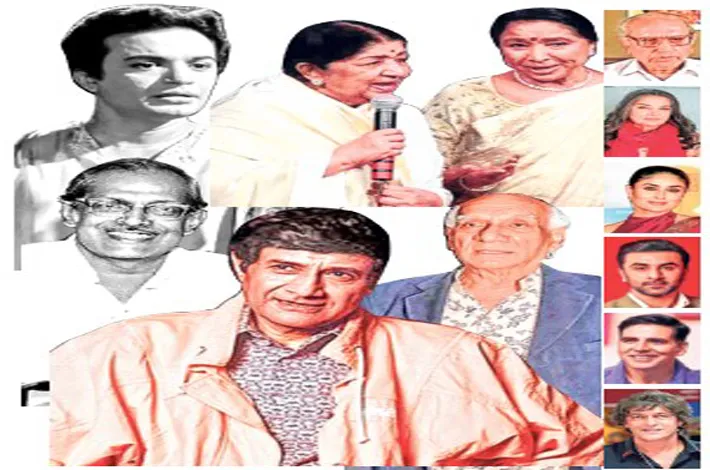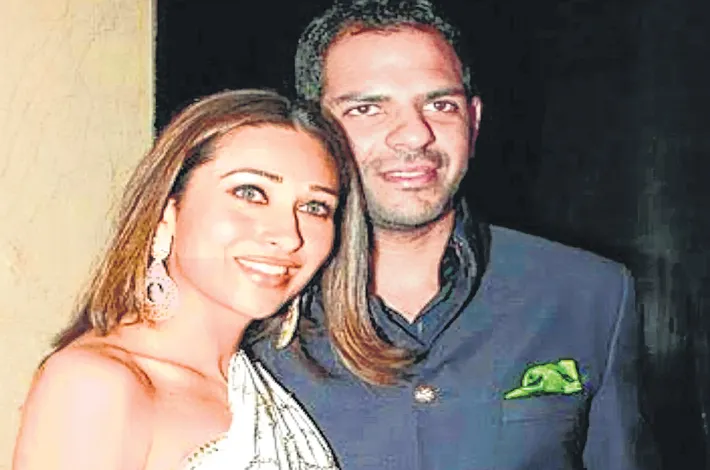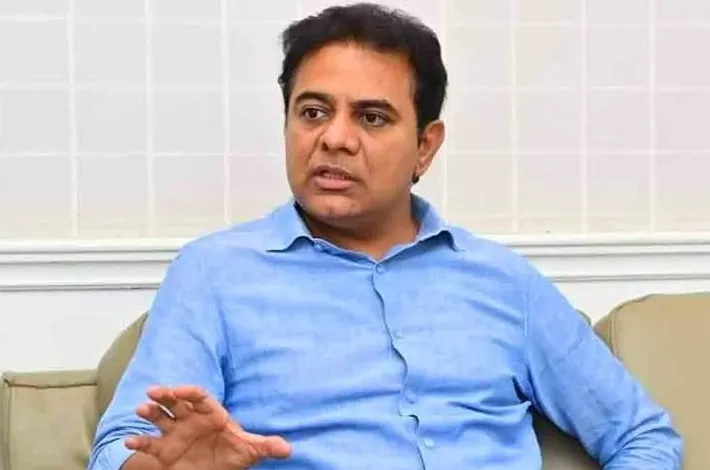A Dance of Three Hearts aka Teen deviyan
14-09-2025 12:00:00 AM

In the quiet village of Rampur, nestled amidst rolling hills and whispering mango groves, lived three sisters—Anjali, Meera, and Suman. Their modest home, with its clay walls and thatched roof, hummed with laughter and the clink of bangles. Each sister was distinct, yet bound by an unspoken love that wove their lives together like the threads of a handwoven saree. Their story, much like the monsoon rains, was one of longing, sacrifice, and the tender bloom of romance.
Anjali, the eldest at twenty-four, was the anchor. Her eyes held the wisdom of someone who had shouldered responsibilities since their parents passed away. She worked as a schoolteacher, her voice gentle but firm, guiding children through arithmetic and poetry. Meera, twenty-one, was the dreamer, her fingers always smudged with charcoal from sketching the world as she imagined it—full of color and impossible love stories. Suman, barely eighteen, was the spark, her laughter a melody that danced through the village, her heart unburdened by the weight of the world.
Their lives shifted the day Vikram arrived in Rampur. A young engineer from Kolkata, he was sent to oversee the construction of a new bridge across the river that cradled the village. Tall, with a quiet smile and eyes that seemed to hold stories of their own, Vikram rented a room in the sisters’ home, as their house was one of the few with a spare corner to offer.
Anjali noticed him first. She saw the way he carried himself—confident yet unassuming, his hands stained with blueprints and river mud. Their conversations began over chai, served in chipped cups on the verandah. Vikram spoke of bridges not just as structures but as connections, linking lives and dreams. Anjali, practical by necessity, found herself softening, her heart stirring as he described his childhood by the Hooghly River. One evening, as the sun dipped below the hills, Vikram handed her a small book of Tagore’s poems, saying, “You remind me of his words—strong, yet tender.” Her fingers brushed his as she took it, and in that fleeting touch, a spark ignited.
Meera, however, saw Vikram through her artist’s lens. She sketched him in secret, capturing the curve of his jaw, the intensity of his gaze as he studied his plans. One afternoon, she found him by the river, lost in thought. Gathering courage, she showed him her sketchbook. “You make the world more beautiful,” he said, his voice low, and Meera’s heart raced. They began meeting by the riverbank, where she’d draw while he spoke of his dreams to build not just bridges but a better world. Meera, who had always lived in her imagination, felt her fantasies take root in reality, each moment with Vikram painting her world in hues she’d never known.
Suman, the youngest, was drawn to Vikram’s warmth. He treated her like a sister, teasing her about her endless energy and sneaking her extra jalebis from the market. One evening, during a village festival, Vikram joined the sisters in a dance around a bonfire. Suman, twirling in her bright lehenga, laughed as Vikram spun her, his grin wide and unguarded. She began to weave dreams around him, mistaking his kindness for something deeper, her young heart unaware of the complexities of love.
As weeks turned to months, the air in the sisters’ home grew heavy with unspoken desires. Anjali, ever the protector, noticed Meera’s sketches and Suman’s shy smiles. Her own heart ached, but she buried her feelings, believing her sisters’ happiness mattered more. She saw the way Vikram’s eyes lingered on Meera’s drawings, the way he laughed with Suman, and she convinced herself he belonged to one of them, not her.
Meera, too, sensed the shift. She saw Anjali’s quiet glances, the way her sister’s hands trembled when Vikram spoke to her. Meera’s heart broke at the thought of hurting Anjali, who had sacrificed so much for them. She began to withdraw, her sketches growing darker, her riverbank meetings with Vikram less frequent.
Suman, oblivious to the undercurrents, confessed her feelings to Vikram one starry night. “I think I love you,” she whispered, her voice trembling. Vikram, gentle but firm, knelt before her. “You’re like my little sister, Suman,” he said, brushing a tear from her cheek. “My heart lies elsewhere.” Crushed, Suman ran home, her dreams shattering like glass bangles.
The truth unraveled one rainy evening. Vikram, soaked from working on the bridge, found Anjali alone in the kitchen, kneading dough with mechanical precision. “Anjali,” he said, his voice steady, “I’ve been meaning to tell you something.” She froze, her heart pounding. “I came to Rampur to build a bridge, but I found something more—you. Your strength, your kindness… I love you.”
Anjali’s eyes filled with tears. “But Meera… Suman…” she stammered. Vikram shook his head. “Meera is a friend, a brilliant soul. Suman is a sister. You, Anjali, are my home.”
Meera, overhearing from the doorway, felt a pang but also relief. She stepped forward, her voice soft. “Anjali, you’ve given us everything. It’s your turn to be happy.” Suman, who had been listening too, nodded through her tears, her heart healing in the warmth of her sisters’ love.
The monsoon passed, and the bridge was completed, a sturdy arc over the river. Vikram stayed in Rampur, his heart tethered to Anjali. Meera’s sketches found new life, her art now reflecting the joy of her sister’s love. Suman, wiser, danced again, her laughter brighter than ever. The three sisters, bound by love and sacrifice, learned that the heart, like a river, finds its way, carving paths through even the hardest stone.








